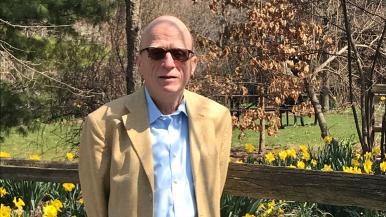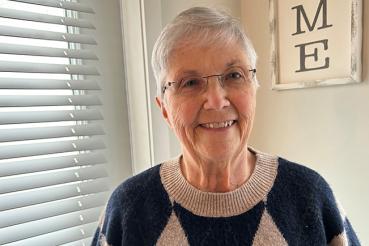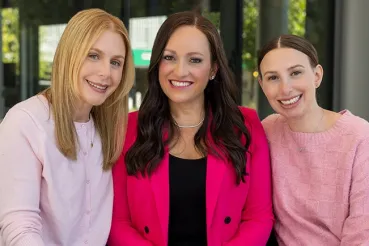For years, Chester Kelly thought that the throat discomfort and difficulty swallowing he had been experiencing for years was something he was just going to have to live with. But, after a bout of food poisoning while he and his family were vacationing abroad during the fall of 2019, his throat trouble went from bad to worse.
“We were in Ireland and I got food poisoning, which exacerbated the problems with my esophagus,” Chester says. “I ended up in a hospital in Dublin.”
Once he was stable enough to travel, Chester returned to the United States and visited his doctor, who referred him to specialists for further testing. Unfortunately, he saw several doctors who could not identify the cause of his discomfort. So, they tried managing his symptoms with a dilation of his esophagus that helped open his throat and offered short-term relief. However, these were simply temporary fixes and did not help identify or address the underlying problem.
“It became clear things were getting worse and not better,” Chester says. “I feel that between October and February, I wasted months going down the wrong path to try to treat my discomfort.”
Seeking a second opinion
Eventually, Chester’s throat issues become increasingly disruptive and he was not getting the answers or relief he needed. That’s when he decided to seek a second opinion at Rush University Medical Center with thoracic surgeon Christopher W. Seder, MD.
Seder diagnosed Chester with ischemic esophagitis, a rare condition caused by low blood flow to his esophagus, resulting in issues swallowing and making him susceptible to illness. Chester and Seder discussed his symptoms and treatment options. Among other solutions, Seder suggested an extensive thoracic surgery that could permanently resolve Chester’s discomfort.
For issues with the esophagus that cannot be resolved medically, an esophagectomy is a procedure that removes some or all of the esophagus through incisions in the chest and stomach. The missing piece of the esophagus is replaced by part of the stomach to allow Chester to eat normally and help improve his quality of life.
“My first appointment was really good,” Chester says. “I came in with great trepidation knowing it was serious, so I was very nervous. But Dr. Seder was very caring and wanted me to be as comfortable as I could be.”
Seder notes that whether he is seeing a patient for an initial diagnosis or for a second opinion, his goal is to provide answers and options, while making sure patients feel comfortable.
“At the end of the day, you can get good care in many places,” Seder says. “The main things I do when they walk into my office are shake their hands, look them in the eyes, and tell them that I’m going to do everything I can to help them.”
Many patients find the prospect of seeking out a second opinion to be a bit awkward, even disloyal to their primary doctor. However, Seder stresses that doctors don’t take it personally.
“Even if your surgery is scheduled in two days somewhere else, we’ll get you in to discuss your options before that,” Seder says. “If any doctor tells you not to get a second opinion, you need to get a second opinion, and your primary doctor should be OK with that. It’s all about the patient, not the doctors. We’re all trying to provide the best care for our patients, but you need to go where you’re most comfortable.”
Moving forward
Chester finally had the answers he had been searching for. His condition was treatable either with continued esophageal dilations or through a major surgery that would remove a section of his esophagus. While the surgery was not without risks, Chester decided it was the best way forward — and he was confident in Seder and his team.
Originally, his surgery was scheduled for March 2020, but it was rescheduled for the following month due to COVID-19.
“Dr. Seder was very reassuring and went into great detail about how Rush was handling COVID-19 safety precautions,” Chester says. “He explained the processes they were using to make sure all patients were safe. It was really reassuring.”
The surgery took about six hours and included Seder operating on the chest and abdomen to access the esophagus. Even with the COVID-19 safety precautions and restrictions (e.g., no visitors, universal masking), Chester noted that his care team was warm, compassionate and incredibly caring the whole time he was there.
The surgery was very successful, and Chester is happy with his decision to move forward with the procedure with Seder.
After months of treating the symptoms of his illness with time-intensive, short-term solutions, Chester has resumed living a normal, healthy life without the hassle of regular dilation and chronic pain and discomfort in his throat.




